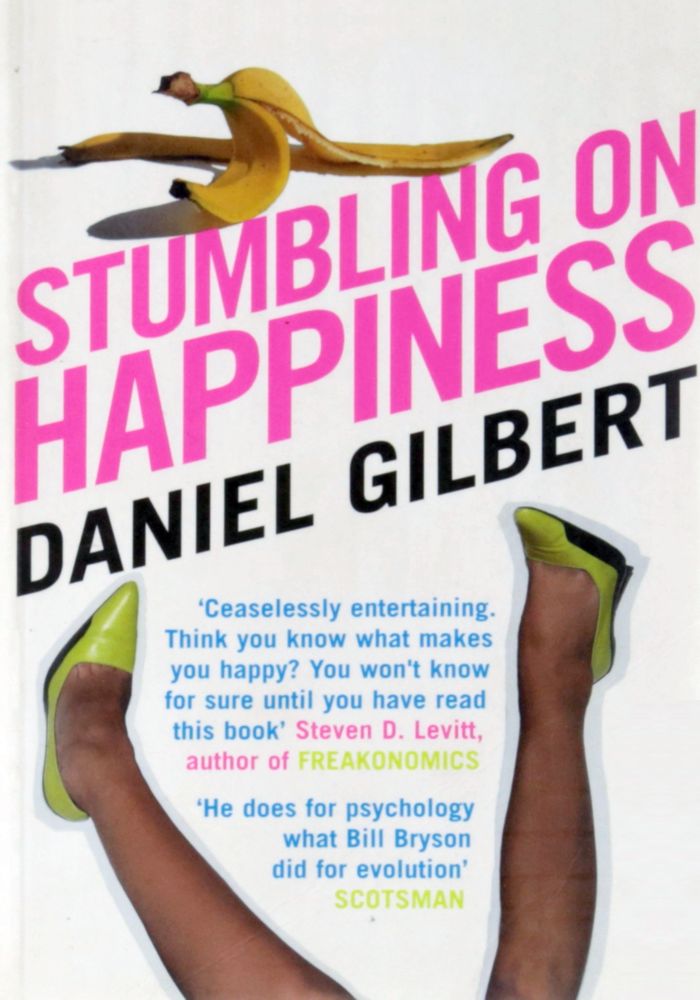
Stumbling on Happiness
کتاب های مرتبط
- اطلاعات
- نقد و بررسی
- دیدگاه کاربران
نقد و بررسی

March 6, 2006
Not offering a self-help book, but instead mounting a scientific explanation of the limitations of the human imagination and how it steers us wrong in our search for happiness, Gilbert, a professor of psychology at Harvard, draws on psychology, cognitive neuroscience, philosophy and behavioral economics to argue that, just as we err in remembering the past, so we err in imagining the future. "Our desire to control is so powerful, and the feeling of being in control so rewarding, that people often act as though they can control the uncontrollable," Gilbert writes, as he reveals how ill-equipped we are to properly preview the future, let alone control it. Unfortunately, he claims, neither personal experience nor cultural wisdom compensates for imagination's shortcomings. In concluding chapters, he discusses the transmission of inaccurate beliefs from one person's mind to another, providing salient examples of universal assumptions about human happiness such as the joys of money and of having children. He concludes with the provocative recommendation that, rather than imagination, we should rely on others as surrogates for our future experience. Gilbert's playful tone and use of commonplace examples render a potentially academic topic accessible and educational, even if his approach is at times overly prescriptive. 150,000 announced first printing.

March 15, 2006
Harvard psychologist Gilbert has won teaching awards and published sf stories as well as academic research articles. Here, he proposes that we are errant predictors of our future feelings: we fail to make ourselves as happy as we could be. "Why?" A distorted recall of past experience, a tendency to project present feeling into the future, and a reluctance to trust the experience of people who have lived through what is ahead of us. To back up his somewhat elusive thesis, Gilbert draws on a mixed bag of findings (some substantial, others akin to junk food) and conducts rather contrived experiments. Replete with jokes, but ultimately lacking in structure and focus, this book will intrigue psychology buffs only to leave them wondering what happened to the main course. Interest may be strong with a ten-city tour by this sage with tickler, but readers are better served by Gregory Berns -s "Satisfaction: The Science of Finding True Fulfillment" and Jonathan Haidt -s "The Happiness Hypothesis". [See Prepub Alert, "LJ" 1/06.]" -E. James Lieberman, George Washington Univ. Sch. of Medicine, Washington, DC"
Copyright 2006 Library Journal, LLC Used with permission.

April 15, 2006
Anticipating the future, psychologist Gilbert suggests, is the brain's most important function, and the notion of " later," a powerful idea. But why not live in the here and now, as many self-help gurus urge? Because, Gilbert says, thinking about the future can be pleasurable; for instance, daydreaming tends to be about success and achievement "rather than fumbling or failing." Citing the research of scientists and philosophers through the ages and incorporating facts and theories from psychology, cognitive neuroscience, philosophy, and behavioral economics, Gilbert discusses the science of happiness, the shortcomings of imagination as well as the illusions of foresight. And far from being a dry tome, the book is a sly, irresistible romp down, or through, memory lane--past, present, and future. It is not only wildly entertaining but also hilarious (if David Sedaris were a psychologist, he very well might write like this) and yet full of startling insight, imaginative conclusions, and even bits of wisdom.(Reprinted with permission of Booklist, copyright 2006, American Library Association.)

























دیدگاه کاربران